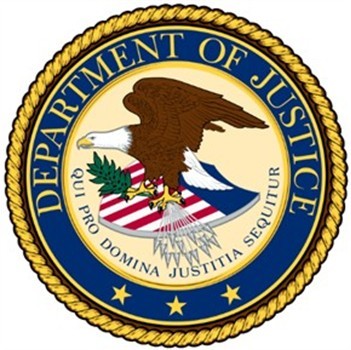LEXINGTON, KY – The U.S. Attorney’s Office Eastern District of Kentucky is reporting that on Tuesday the Justice Department announced the results of its efforts over the past year to protect older adults from fraud and exploitation.
During the past year, the Department and its law enforcement partners tackled matters that ranged from mass-marketing scams that impacted thousands of victims to bad actors scamming their neighbors. Substantial efforts were also made over the last year to return money to fraud victims. Tuesday, the Department also announced it is expanding its Transnational Elder Fraud Strike Force to amplify efforts to combat scams originating overseas.
“We are intensifying our efforts nationwide to protect older adults, including by more than tripling the number of U.S. Attorneys’ offices participating in our Transnational Elder Fraud Strike Force dedicated to disrupting, dismantling and prosecuting foreign-based fraud schemes that target American seniors,” said Attorney General Merrick B. Garland. “This expansion builds on the Justice Department’s existing work to hold accountable those who steal funds from older adults, including by returning those funds to the victims where possible.”
“The targeting of elderly and vulnerable populations through fraud schemes is a significant threat and we simply must build on our efforts to combat this disgraceful conduct,” said Carlton S. Shier, IV, United States Attorney for the Eastern District of Kentucky. “The expansion of Transnational Elder Fraud Task Force is another tool to help us work with our federal, state, and local law enforcement partners to prosecute those who shamelessly look to cheat seniors out of their money, security, and peace of mind.”
From September 2021 to September 2022, Department personnel and its law enforcement partners pursued approximately 260 cases of targeting elderly victims, involving more than 600 defendants, both bringing new cases and advancing those previously charged.
One example, from the Eastern District of Kentucky, was the extradition and conviction of Adedunmola Gbadegesin, 34, from Nigeria. He was charged along with three others, Olatunbosun Oluwakayode Ajayi, 40, of Atlanta, Otunuya Ineh Eqwem Livingstone, 46, of Houston, and Ismaila Fafunmi, 36, of Indianapolis, with conspiracy to commit money laundering. Gbadegesin and his co-conspirators collaborated to create fake online dating profiles, posted to online dating websites. As part of the conspiracy, they engaged in online chats, emails, and telephone calls with unwitting victims, who were located in the United States, including one in Lexington. The conspiracy employed others in the United States to receive money from the intended victims and transport that money back to Nigeria, through various means.
Additionally, with cooperation from local, state, and federal partners, the Eastern District of Kentucky has prioritized combatting elder financial exploitation. An example of that cooperation among law enforcement is the Kentucky Elder Justice Task Force, which brings together the resources of federal, state, and local agencies involved in protecting the elderly. For more information on the Kentucky Elder Justice Task Force, including how to report abuses, please visit: https://www.justice.gov/usao-edky/elder-justice-task-force.
Nationwide, the Department highlighted three efforts: expansion of the Transnational Elder Fraud Task Force, success in returning money to victims, and efforts to combat grandparent scams.
The Department announced that, as part of its continuing efforts to protect older adults and bring perpetrators of fraud schemes to justice, it is expanding the Transnational Elder Fraud Strike Force, adding 14 new U.S. Attorney’s Offices. Expansion of the Strike Force will help to coordinate the Department’s ongoing efforts to combat largest and most harmful fraud schemes that target or disproportionately impact older adults.
In the past year, the Department has also notified over 550,000 people that they may be eligible for remission payments. Notifications were made to consumers whose information was sold by one of three data companies prosecuted by the Department and were later victims of “sweepstakes” or “astrology” solicitations that falsely promised prizes or individualized services in return for a fee. More than 150,000 of those victims cashed checks totaling $52 million, and thousands more are eligible to receive checks. Also notified were consumers who paid fraudsters perpetrating person-in-need scams and job scams via Western Union. In the past year, the Department has identified and contacted over 300,000 consumers who may be eligible for remission. Since March of 2020 more than 148,000 victims have received more than $366 million as a result of a 2017 criminal resolution with Western Union for the company’s willful failure to maintain an effective anti-money laundering program and its aiding and abetting of wire fraud.
Similarly, the Department pursued cases against the perpetrators of “grandparent scams,” otherwise known as “person-in-need scams.” These scams typically begin when a fraudster, often based overseas, contacts an older adult and poses as either a grandchild, other family member or someone calling on behalf of a family member. Call recipients are told that their family member is in jeopardy and is urgently in need of money. When recently sentencing one of eight perpetrators of a grandparent scam indicted under the Racketeer Influenced and Corrupt Organizations Act, a federal judge described such scams “heartbreakingly evil.” The Department is working with government partners and others to raise awareness about these schemes.
Reporting from consumers about fraud and fraud attempts is critical to law enforcements efforts to investigate and prosecute schemes targeting older adults. If you or someone you know is age 60 or older and has been a victim of financial fraud, help is available the National Elder Fraud Hotline: 1-833-FRAUD-11 (1-833-372-8311). This Department of Justice Hotline, managed by the Office for Victims of Crime, is staffed by experienced professional who provide personalized support to callers by assessing the needs of the victim and identifying next steps. Case managers will identify appropriate reporting agencies, provide information to callers to assist them in reporting or connect them with agencies, and provide resources and referrals on a case-by-case basis. The hotline is staffed seven days a week from 6 a.m. to 11 p.m. ET. English, Spanish, and other languages are available. More information about the Department’s elder justice efforts can be found on the Department’s Elder Justice website, www.elderjustice.gov.
Some of the cases that comprise today’s announcement are charges, which are merely allegations, and the defendants are presumed innocent unless and until proven guilty beyond a reasonable doubt in a court of law.
-END-












